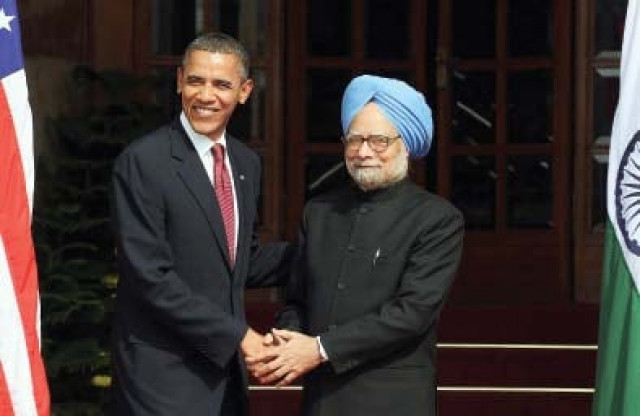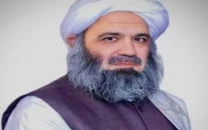A wake-up call for Pakistan
Obama went further than any US president, backing India’s quest for a permanent seat on the UN Security Council.

The US president declared India a world power and stated that the India-US alliance was “one of the defining partnerships of the 21st century”. He also unveiled deals worth $10 billion designed to create 50,000 American jobs in an ailing economy.
Obama went further than any US president before him and backed India’s quest for a permanent seat on the UN Security Council, although with no immediate prospect of reform and likely strong Chinese opposition, it was a largely symbolic move.
The warm embrace between Obama and the Indian Prime Minister Manmohan Singh stood in stark contrast to the latest bid to overcome mistrust between Pakistan and the US, held just weeks before, when a round of ‘strategic dialogue’ was held between the two countries.
“Pakistanis have to be more realistic on understanding India’s growing international role,” political analyst Hasan Askari said.
“India is investing in the United States while our economy is in bad shape. There is no Pakistani investment in the West and very little in the Middle East. We ask for money from the United States, while India does not.”
Indian deals will funnel $10 billion dollars into the US economy, while American taxpayers fork out $1.5 billion of development aid to Pakistan under a US Congress bill, with promises of another $2 billion in military assistance.
While Obama’s visit reflects the shift in power to emerging nations since the financial crisis, Pakistan is a client state with a Taliban and al Qaeda presence plotting to kill US soldiers and fanning the war in Afghanistan.
Moreover, Pakistan’s status as a nuclear power still alarms the West as the country has been stifled by decades of military rule, recession and militancy.
Its security forces are fighting a Taliban insurgency in the northwest. Bomb attacks have killed thousands nationwide and its tribal belt is considered an al Qaeda headquarters subject to a covert US drone war.
Analysts say Islamabad should soften its foreign policy – to one which is dominated by the anti-Indian military--to avoid isolation as the United States looks to end the war against the Afghan Taliban which Pakistan helped to create.
But there was also gratitude as Obama refused to be drawn into fresh criticism of Islamabad unlike British Prime Minister David Cameron who sparked a diplomatic crisis when he accused Pakistan of exporting terror during his time in India.
Askari said that Obama did not sideline Pakistan, in what was a nod to the US realisation that the country is indispensable to forging peace in Afghanistan.
Published in The Express Tribune, November 11th, 2010.



















COMMENTS
Comments are moderated and generally will be posted if they are on-topic and not abusive.
For more information, please see our Comments FAQ